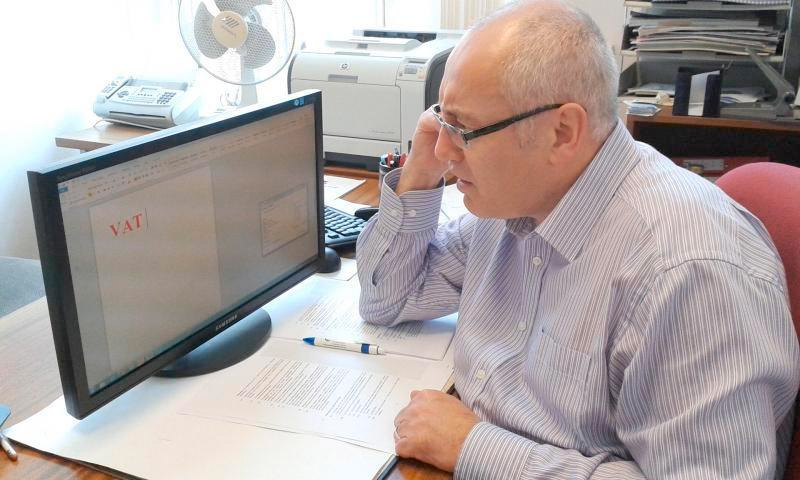Businesses above the VAT threshold will need to keep their records digitally and submit their VAT returns using compatible software as part of Making Tax Digital (MTD) for periods starting on or after 1 April.
HM Revenue & Customs (HMRC) recognises that businesses will require time to become familiar with the new requirements of MTD and says that during the first year it will take a light touch approach to digital record keeping and filing penalties where businesses are doing their best to comply with the law. However, HMRC says this does not mean a blanket ‘no penalties' promise.
HMRC says going digital should save companies time and should be easy enough for most companies to implement.
A YouGov Survey for the tax office has shown that 68% of senior decision makers working in construction have lost paper receipts.
The survey also found that 92% of decision makers personally bank online and almost two thirds (62%) support all tax accounts being digitised.
One in four of those working in a small business are spending more than 10 hours a week on administrative tasks, including tax administration, which MTD is intended to reduce.
In practice, the vast majority of businesses won’t need to send their first MTD return until August at the earliest, but if they aren’t already keeping their records digitally they will need to start doing so. HMRC is encouraging more businesses to get involved early by getting software and starting to test the service now.
Mel Stride, Financial Secretary to the Treasury, says: “Anything that helps businesses to manage their tax more easily so they can focus on what they do best – innovating, expanding, and creating jobs and profits – is what every modern business needs. In a world where customers and suppliers are already banking, paying bills and shopping online, it makes sense for HMRC and businesses to bring tax affairs fully into the 21st century.
“Going digital with business records and taxes is the next step to businesses getting more control over their business and their finances.”
Theresa Middleton, Director of the Making Tax Digital for Business Programme, says there is no change to ‘what’ information is required, just ‘how’ it is recorded, generated and provided.
"We want to help businesses be ready for the changes which kick in for VAT periods that start on or after 1 April. We’ll have written to every business required to join this year by the end of February, but even back in December over 80% of them were aware of the changes they need to make and the vast majority of those are already preparing. More than 16,500 businesses have already signed up to do their VAT digitally.”
What businesses need to do?
- Take steps to find out if your business is affected by the Making Tax Digital changes and what you need to do if it is. Most businesses above the VAT threshold have to start keeping their records digitally and sending their VAT return to HMRC direct from their software for VAT periods starting on or after 1 April.
- Talk to your accountant or other agent – if you use one to manage your VAT affairs - about how they are making returns Making Tax Digital compliant.
- Speak to your software provider if you already use software to ensure it will be compatible.
- Those businesses who are either not represented by an accountant and/or do not already use software will need to select software to use and sign-up to MTD. Our GOV.UK webpages provide information on a wide variety of products, from free software for businesses with more straightforward tax affairs, to increasingly sophisticated paid solutions. There are also products that can be used in conjunction with a spreadsheet for those businesses who don’t want to change their underlying record keeping system.
Easy to use guides for businesses, agents and others, including easy-to-follow advice, are available here Use software to submit your VAT Returns
Webinars and videos for Making Tax Digital are available Making Tax Digital for Business - stakeholder communications pack
MTD is part of the government’s #Smartergov campaign which was launched to drive innovation through the public sector.

